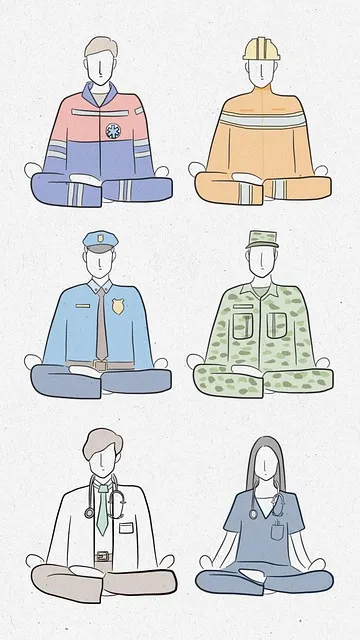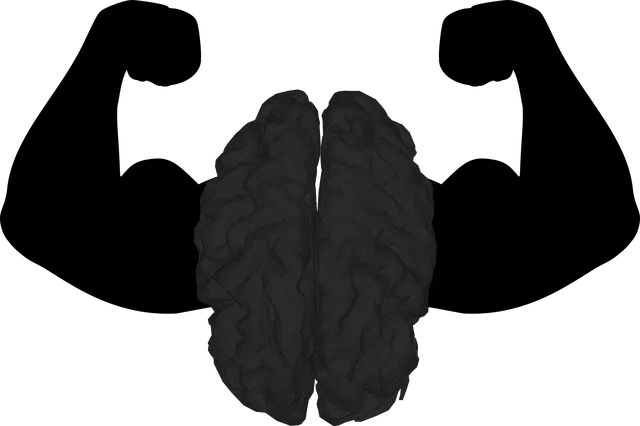The Kaiser Permanente behavioral health center in Lafayette focuses on mood regulation as a path to emotional balance. They employ evidence-based strategies, such as mental wellness journaling and professional guidance, to help individuals identify triggers, develop personalized coping mechanisms, and gain control over their emotional well-being. Cognitive techniques, mindfulness practices, and lifestyle management are also utilized to enhance emotional resilience and overall mental health through the center's comprehensive services.
Discover effective mood regulation strategies at Kaiser Permanente behavioral health center Lafayette. Explore proven techniques such as identifying triggers, cognitive techniques for challenging negative thoughts, mindfulness and meditation practices, and lifestyle adjustments like diet, exercise, and sleep. Unlocking emotional balance can transform your well-being—dive into these strategies to find lasting harmony.
- Understanding Mood Regulation: Unlocking Emotional Balance at Kaiser Permanente Lafayette
- Identifying Triggers: Recognizing Patterns for Effective Strategies
- Cognitive Techniques: Challenging Negative Thoughts with Professional Guidance
- Mindfulness and Meditation: Finding Calm in the Midst of Chaos
- Lifestyle Adjustments: Nurturing Well-being Through Diet, Exercise, and Sleep
Understanding Mood Regulation: Unlocking Emotional Balance at Kaiser Permanente Lafayette
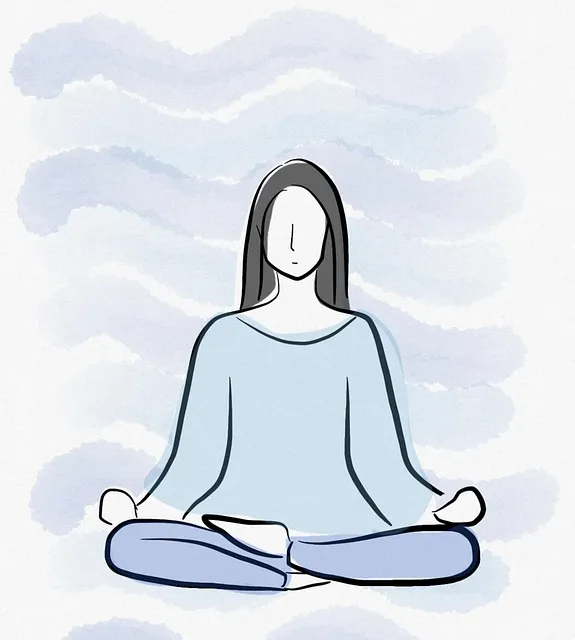
At Kaiser Permanente Lafayette, understanding mood regulation is seen as a vital step towards achieving and maintaining emotional balance. The Kaiser Permanente behavioral health center offers a range of evidence-based strategies designed to help individuals navigate their moods effectively. Through mental health education programs, clients gain insights into recognizing triggers and developing coping mechanisms tailored to their unique needs.
One effective tool encouraged by the center is mental wellness journaling, providing a safe space for expression and reflection. This practice allows individuals to track their emotions, identify patterns, and cultivate positive thinking. Additionally, professional guidance on various mood regulation techniques empowers patients to take charge of their emotional well-being, fostering a sense of control and resilience in their daily lives.
Identifying Triggers: Recognizing Patterns for Effective Strategies
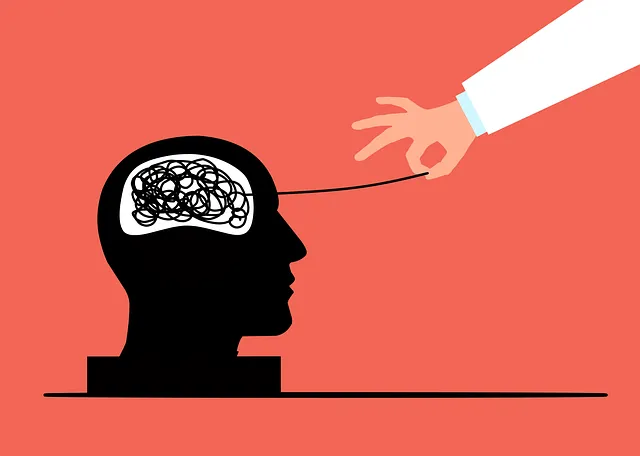
Identifying your triggers is a powerful step towards effective mood regulation. The first step at the Kaiser Permanente behavioral health center Lafayette is to recognize patterns in your emotional responses to certain situations or stimuli. Keeping a mental wellness journal can be an insightful tool; document your feelings, behaviors, and surroundings when you experience shifts in mood. Over time, you may notice recurring themes or specific triggers that set off these changes. For instance, some individuals find that social interactions, work pressures, or even specific foods impact their emotional state significantly.
Understanding these patterns allows for the development of tailored strategies. If, through your journaling exercise, you realize that certain social events consistently trigger anxiety, you can begin to implement risk management planning for mental health professionals recommended by Kaiser Permanente Lafayette. This might include practicing mindfulness techniques before and during such events, seeking support from peers or a therapist, or even setting boundaries to protect your mental wellness. Similarly, identifying confidence-boosting activities or positive self-talk strategies can help counteract the impact of triggers on your emotional well-being.
Cognitive Techniques: Challenging Negative Thoughts with Professional Guidance
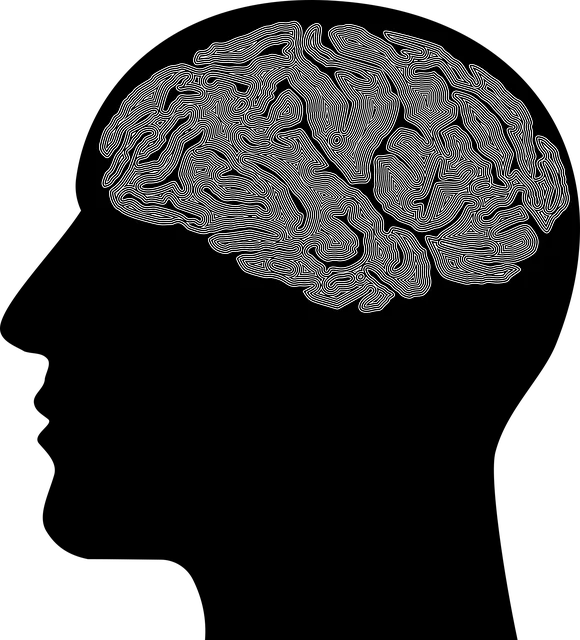
Cognitive techniques offer a powerful tool for mood regulation and emotional well-being. One effective approach is challenging negative thoughts with professional guidance. At the Kaiser Permanente behavioral health center Lafayette, experts in mental health provide support to help individuals identify and reframe distorted thinking patterns. This process involves learning to recognize automatic negative thoughts—those swift, often unwelcome beliefs that arise in response to stress or difficult situations.
By engaging in therapeutic conversations and employing techniques like mindfulness meditation and conflict resolution skills, which are integral parts of the Healthcare Provider Cultural Competency Training, individuals can develop healthier cognitive habits. This transformation enables better emotional regulation, allowing one to respond rather than react to challenging circumstances. Such practices foster a deeper understanding of oneself and improve overall resilience, leading to enhanced mental health and quality of life.
Mindfulness and Meditation: Finding Calm in the Midst of Chaos

In today’s fast-paced world, finding calm amidst chaos has become a valuable skill, and mindfulness and meditation are proven techniques to achieve this. The Kaiser Permanente behavioral health center in Lafayette offers insights into how these ancient practices can be powerful mood regulation strategies. By focusing on the present moment and cultivating non-judgmental awareness, individuals can navigate stress and emotional challenges more effectively.
Meditation, a key component of mindfulness, encourages mental clarity and emotional resilience. It allows one to step back from chaotic thoughts and feelings, fostering a sense of inner peace. This practice is not just about stilling the mind but also about understanding and accepting emotions as they arise. The Cultural Sensitivity in Mental Healthcare Practice approach can enhance these benefits, ensuring that mindfulness techniques are accessible and relevant to diverse populations. Moreover, integrating meditation into daily routines can significantly contribute to Stress Management, a critical aspect of mental health policy analysis and advocacy, enabling individuals to thrive in today’s demanding environment.
Lifestyle Adjustments: Nurturing Well-being Through Diet, Exercise, and Sleep

Maintaining a healthy lifestyle is an essential component of mood regulation and can significantly impact overall mental wellness. The Kaiser Permanente behavioral health center Lafayette emphasizes the interconnectedness of diet, exercise, and sleep in fostering optimal well-being. A balanced diet, rich in nutrients, has been linked to improved brain function and stable moods. Incorporating regular physical activity not only boosts endorphin levels but also provides an outlet for stress relief and emotional expression. Adequate sleep is crucial for cognitive restoration and emotional regulation, ensuring that individuals can navigate their day with a clearer mindset.
These lifestyle adjustments are powerful tools accessible to everyone. For those seeking guidance, the Kaiser Permanente behavioral health center Lafayette offers valuable resources and support. Mental wellness journaling exercises, combined with exercise and mindfulness practices, can be particularly effective in helping individuals track their moods and identify triggers. Moreover, healthcare provider cultural competency training equips professionals with the skills to offer tailored assistance, ensuring a holistic approach to mental health care that respects diverse backgrounds and needs.
At Kaiser Permanente behavioral health center Lafayette, understanding mood regulation is key to achieving emotional balance. By identifying triggers, employing cognitive techniques, embracing mindfulness, and making lifestyle adjustments like diet, exercise, and sleep habits, individuals can effectively manage their moods. These strategies empower folks to navigate life’s challenges with resilience, fostering overall well-being.
